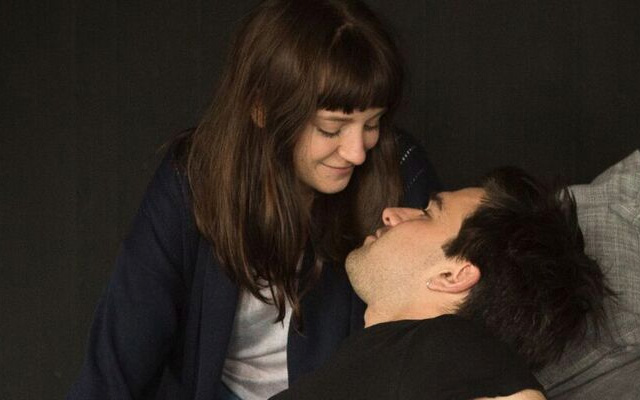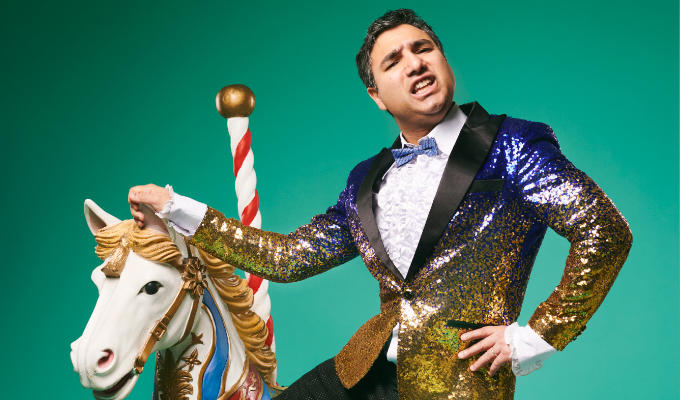 © Claire Haigh
© Claire Haigh Travesty
Note: This review is from 2016
Review by Steve Bennett
Of all the comedians of his generation, you would have put money on Liam Williams writing a play. His writing has always been literate, sometimes poetic, striving to unlock deeper truths, sometimes brilliantly, sometimes not.
Travesty is about a middle-class, liberal, metropolitan couple, initially in their twenties, feeling their way through a modern relationship. The five scenes start with the moment the possibility of exclusivity arises, and moves through the crucial ‘I love you’ moment, through the plateau of domesticity and compromised professional dreams, and down to the decision whether to settle, Williams enjoying the ambiguity of whether that means to ‘settle down’ or compromise.
The big hook is that the genders are reversed, which takes a minute or two to realise. Ben is played a woman, Lydia Larsen, and Anna by a man, Pierro Niel-Mee. Travesty, from the Italian ‘trans- vestire’, cross- clothing.
Williams’s aim is to highlight gender differences usually taken for granted, personality quirks exaggerated by playing against type: Having the ‘female’ Ben a bit slobby and happy to go out without a shower, while the ‘male’ Anna plays it coy and is a little obsessed with laundry. You know what girls are like.
The casting takes a little while to settle into, but once it’s accepted, it’s really no big deal, even when Ben reacts with aggression and jealousy. After all the West End has us subscribe to female King Lears, Prosperos and Henry Vs, audiences can probably cope with this.
Ultimately, the characters play against their stereotypes anyway, which is the point. Ben winds up seeking the commitment of coupledom while Anna wants to play the field – though the idea that is what each gender would want is hardly out of the ordinary in 2016.
Given Williams’s background, it’s little surprise that the observations are spot on, and there is a good smattering of good jokes, without upsetting the notion that is a serious analysis of a certain type of coupling.
The idea of relationships being ‘mediated through consumption’ is a brilliantly memorable one, so accurately describing how middle-class relationships come to be defined by craft fairs, homeware or dining out. The dialogue setting out this idea sounds like it could be a stand-up routine, mind, and Ben seems close to Williams’s own personality: a bit of a poet with a touch of the pretentious.
Yet the characters remain real, thanks to natural, empathetic performances. Genuine is the awkwardness when one partner says that first ‘I love you’, and doesn’t get it back; or the jealousy sparked when a suspicious Anna notices Ben always refers to ‘my friend’ Gillian, a tad defensively.
The gimmick of gender-reversal aside – and it does feel a bit like a gimmick – these characters are credible cyphers for a generation still trying to come to terms with the fact all the dreams they were once encouraged to have romantic, artistic, professional are unlikely to come to fruition.
Review date: 15 Aug 2016
Reviewed by: Steve Bennett
Reviewed at:
Assembly George Square








